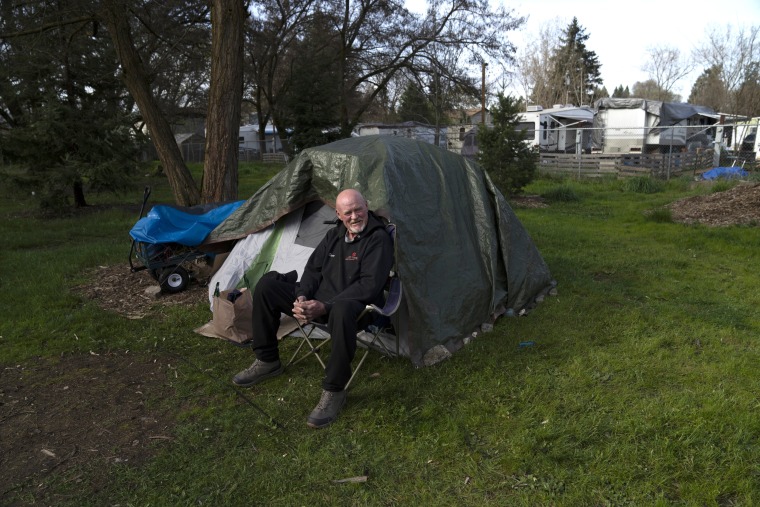WASHINGTON — The Supreme Court on Monday weighs the constitutionality of municipal ordinances that punish homeless people for camping on public property when they have nowhere else to go.
The court, which has a 6-3 conservative majority, will review an appeals court ruling that said several ordinances enacted by the small city of Grants Pass, Oregon, are prohibited under the Constitution’s Eighth Amendment, which bars cruel and unusual punishment.
The ordinances bar sleeping or camping on publicly owned property, including sidewalks, streets, bridges and city parks. Punishment, which is the key issue in the case, can include fines of up to several hundred dollars and exclusion orders barring people from public property.
Exacerbated by lack of housing and the high cost of rent, homelessness and how to deal with it have become flashpoints in many communities across the country.
Advocates for the homeless argue that the ordinances in effect punish people for existing when they have no other place to go and that the measures do nothing to address the underlying issue of housing shortages.
They note that cities already have the power to regulate encampments, something that is not at issue before the Supreme Court.
“Can a city make it illegal on every inch of city land every minute of the day for people to live outside when they have nowhere else to go? We think the answer is no,” said Ed Johnson, a lawyer at the Oregon Law Center who represents the plaintiffs.
The ruling issued by the San Francisco-based 9th U.S. Circuit Court of Appeals in 2022 applies to all nine states within its jurisdiction, including California. Several of those states have large populations of homeless people.
Among those asking the Supreme Court to overturn the appeals court are local officials in Los Angeles, San Francisco, Phoenix and other cities.
The Biden administration has mostly backed the challengers, filing a brief in support of neither side saying laws that bar sleeping on public property are unlawful “if they are applied in a manner that prevents an individual without available shelter from residing in the jurisdiction.”
The appeals court ruled 2-1 that Grants Pass, which is about 250 miles south of Portland, cannot “enforce its anti-camping ordinances against homeless persons for the mere act of sleeping outside with rudimentary protection from the elements, or for sleeping in their car at night, when there is no other place in the city for them to go.”
The decision applies only in situations in which homeless people “are engaging in conduct necessary to protect themselves from the elements when there is no shelter space available,” the court added.
The case arose after a group of homeless people challenged the application of the ordinances. They say there is no shelter space, so they have little option but to sleep outside.

City officials maintain that the ordinances pass legal muster and are aimed at curbing the proliferation of homeless encampments.
Officials argue that their policies are aimed at encouraging homeless people to seek housing, although the city itself does not have its own shelter. It directs people to one run by a religious organization that has limited space and imposes various conditions.
“Fines and short jail terms for camping on public property are not cruel and unusual punishments,” the city’s lawyers wrote in court papers.